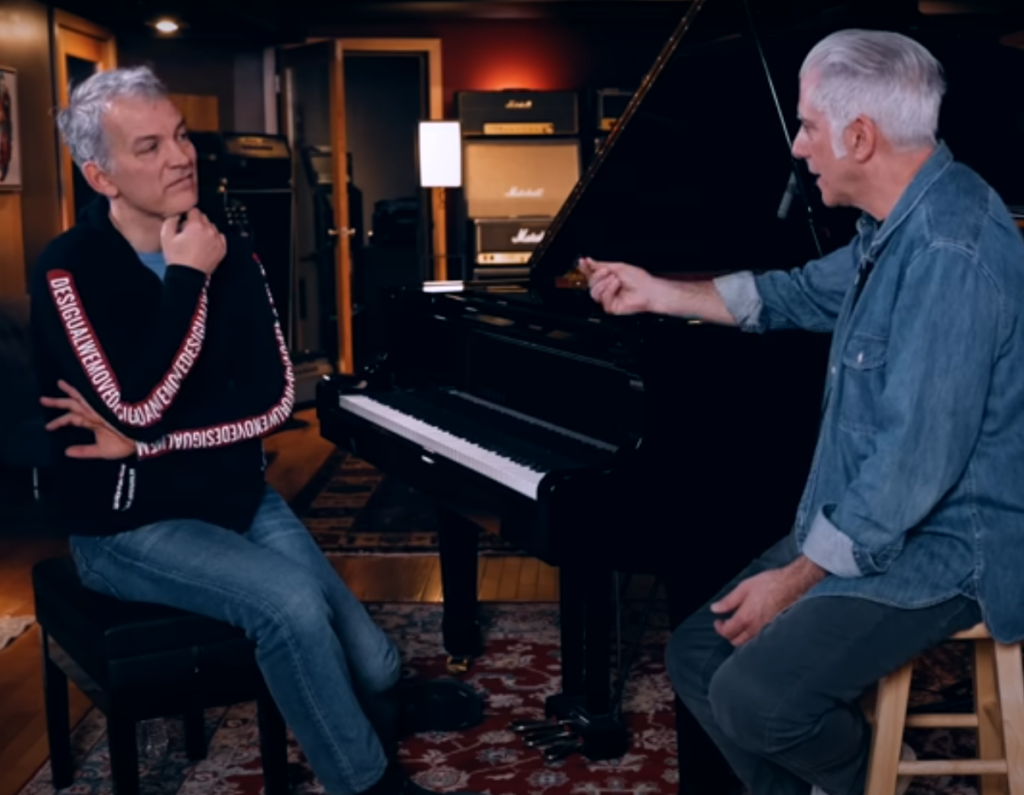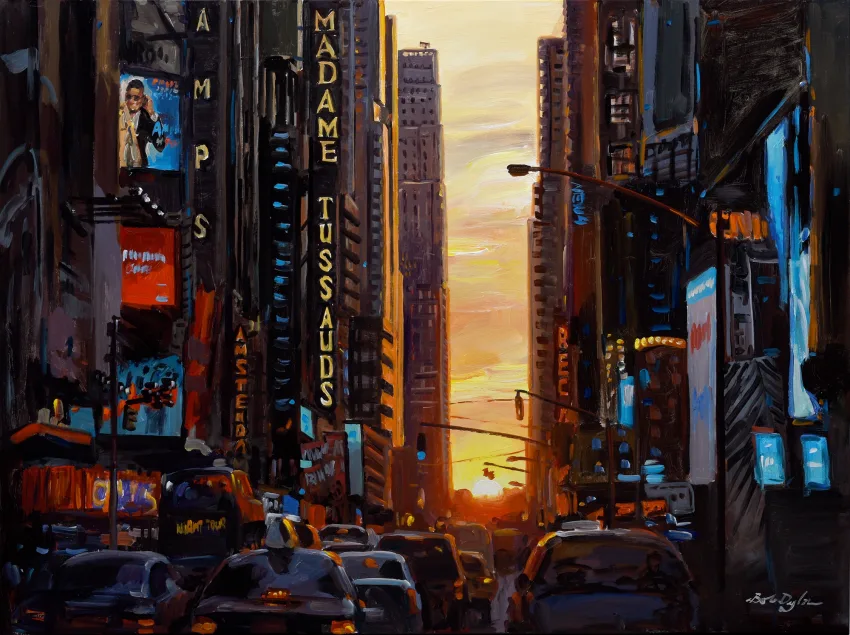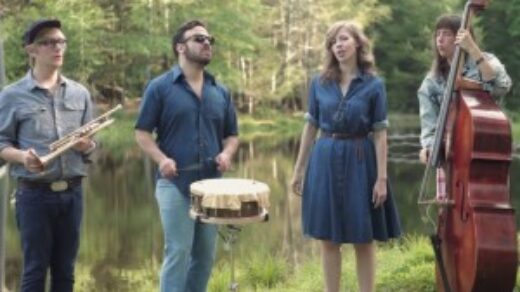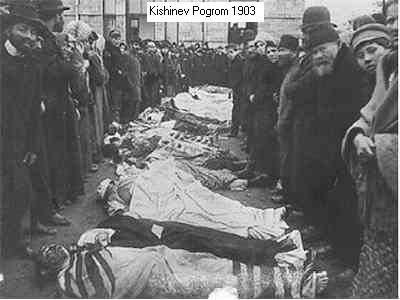I’ve written a lot in the past about Brad Mehldau. SoTW 094 might serve as an easier entry point for the uninitiated. SoTW 299 focuses on him playing The Beatles.
Brad Mehldau, the Beato Interview
Premise

Brad Mehldau is “the greatest living artist”.
Caveat
I know how silly and reductive the term “greatest” is, let alone “greatest artist”; I’ve been hanging around with my 15-year old grandson a lot. I assure you, I use the terms solely as shorthand.
In the full version: “Brad Mehldau is the creative artist from any field whose work over the past 20 years I hold in the highest esteem.” He’s 53 now (b. 1970), at the height of his powers.
Note that I’m excluding performing artists and those whose essential work was done more than a generation ago. I’m also, of course, limiting my thoughts to what I know only, not what I don’t know. So, allowing for shorthand–within my musical ken, who else would be in the running as Greatest Living Artist?
Runners-Up

Jacob Collier would certainly be up there. He’s our Mozart, talented beyond human abilities. My opinion remains: Jacob, if you want to be ranked with Paul Simon, Stevie Wonder and Sting, start writing some memorable songs. I saw his show a year ago and was disappointed. He’s still a hyperactive child supergenius enthralled with his toys. But he’s only 28.
While my interest in most of the classic rock music of my youth wanes, my enthusiasm for Brian Wilson has continued to grow. His album “At My Piano” is a transcendent experience for me. But even there, the masterpieces he’s revisiting are from 60 years earlier. For beauty, he has no competitors. For depth and vision?
Prerequisites for Greatness
If I want to call someone “the greatest artist of our time”, it should be someone whose works I not only admire but also learn from. That’s hard in a medium as inherently abstract as wordless music. I admire the aforementioneds immensely, but I’m not sure how much they’ve grown my spirit or soul or mind.

Bob Dylan runs second to no one in my lifetime (primarily as a wordsmith rather than an instrumentalist). I’ve been looking at his paintings a lot recently. They’re stunning. His recent collection of writings “”The Philosophy of Modern Song” blew me away, writing as intense as in the ‘60s. (Give yourself a good few minutes with it next time you’re in a bookstore, both to read and to enjoy the photos.) His latter albums have shown a remarkable rebirth of creative energy. But what made Dylan Dylan was his first incarnation.
Maria Schneider is a serious, fascinating artist. There’s much to learn from her. But she “only” produces one stunning album every 5 years.
Brad Mehldau

For many years, Mehldau was arguably the best jazz pianist around. From his first CD in 1993, his home court was his trio, with some solo projects and occasional forays into “other” formats. For the last 15 or so years, solo piano seems to be his chief format, with excursions into a mind-boggling range of formats, styles, genres. Major works like “Finding Gabriel” are breaking new ground (and winning Grammies). I’d call it a Sound Symphony. He has been composing more frequently, usually in the Contemporary Classical mode. He recently released “After Bach II” and “After Faure” on the same day, both including performances, written interpretations and improvised interpretations.
But if that’s not enough, now it seems he’s becoming an artist of words—written (his liner notes, his book) and spoken (the Beato interview), where he’s spookily articulate and serious. There’s a reason why within three months, half a million people have watched it and 2000 have commented. It’s brilliant insight after brilliant insight, often with very geeky musical interludes.
Mehldau is more than a musician. Listen to him expand on what we learn about life from Bach. That’s art. You walk away from it feeling enlarged.
Beethoven’s music, for all its universality, is very much about Beethoven, this striving human being, this great personality who is always close to you in the music, and you engage with that personality directly. Whether the performance is strong, or even just entry-level, Beethoven’s big personality dominates, and the performer is in his service…With Bach, the more you try to engage with him, the more your own personality becomes visible, unavoidably. [JM: He shows this through some riveting-for-me geek talk about the relationship between harmony and melody in Bach, forcing the interpreter to make decisions.} You are not playing Bach – Bach is playing you, in the sense that he lays you bare. Musicians love Bach in a different way than other composers, because he feeds them…Bach superseded everything before him and affected everything after, but what he achieved could only happen once, by him alone. His music champions a humanist outlook and a belief in the divine with equal measure. [from liner notes to “After Bach II“
And he’s talented! Dark maybe, but fun to hang with. Don’t get me wrong, just because I’ve been reading his liner notes for mental calisthenics doesn’t mean that you have to. I’ve spent many, many, many hours listening to “10 Years Solo Live” as ambient music–tune in when I want, focus elsewhere when I want. He has his ‘entertaining’ side. For the uninitiated, I’d recommend his Beatles project.
Below is a list of some of Mehldau’s creations over the last decade alone (he’s 53 now, b. 1970). There’s another bunch from 2008-2013 that I admire and enjoy immensely. I’ve limited myself to a mere decade because of:
Advice from Miles Davis to Jeff

That Brad Mehldau, he just keeps coming at you with one knockout something after another. I have a physical need to talk about these things, and there’s been a clog in my brain from the avalanche of really great stuff he’s doing. Had I but world enough and time, I could write a whole post about many of the projects below. I think I could do a graduate degree on his liner notes alone.
There’s so much I want to say that as soon as I dip my quill in ink, my brain is clogged by a congestion of ideas.
Miles Davis once questioned the extreme length of Coltrane’s exploratory, probing solos. “I don’t know how to stop,” said the saxophonist.
“Try taking the fucking horn out of your mouth,” said Miles.
I’ll stop here.
Solo
- “After Bach I”—Four pieces from The Well-Tempered Clavier, each followed by an “After Bach” piece written by Mehldau and inspired by its WTC mate.
- “After Bach II”—BM’s further explorations through performance, composed interpretation, and improvisation. This is so comparable to Shostakovich’s homage to The 48.
- “Après Fauré”. BM performs pieces by and inspired by Fauré.
- “Suite:April 2020”—BM’s composed suite describing the solitude and isolation of the Covid plague. A moving statement on the human condition.
- “Your Mother Should Know: Brad Mehldau Plays The Beatles”—Throughout his career BM has performed and recorded Beatles songs. In 2020 he gifted us a live solo program of Beatles explorations. Here’s my favorite, ‘Golden Slumbers’.
- “10 Years Solo Live”, a 4-CD, 5-hour compilation “divided into four thematic subsets: Dark/Light, The Concert, Intermezzo/Rückblick, and E Minor/E Major.” I’ve listened to this collection for many, many, many hours. It’s a wellspring of wonderful music. I’ve found that the longer the track, the deeper BM goes. One of my favorites is this 16-minute exploration into ‘And I Love Her’. This is as good as it gets.
- “Formation”—BM’s latest, very beautiful project, as yet unreleased, 14 composed “reveries” in the contemporary classical vein. Here’s an audience recording (January 31, 2024) of the Carnagie Hall premiere. Setlist in the comments.
Little “Other” Projects
- The Folly of Desire—art songs composed by BM to poems by Blake, Yeats, Shakespeare, Brecht and Goethe, sung by a classical tenor, alongside jazz standards and a Schubert lied
- 2 film soundtracks
Big “Other” Projects
- “Jacob’s Ladder”, a prog-rock oriented concept album reflecting on scripture and the search for God”
- “Finding Gabriel” scripture-inspired, large canvas cross-genre, a grandiose collage of thoughts and sounds. Grammy for Best Jazz Instrumental Album 2019 (though it contains lots of spoken and sung words).
- Variations on a Melancholy Theme – composed pieces for piano and orchestra
Quartet
- 2 albums with supergroup Redman/McBride/Blade/Mehldau
Trio
- “Seymour Reads the Constitution!”—BM with his trio, 2 Grammy nominations
- “Blues and Ballads” – one of my favorite BM trio outings
Duos
with some of the finest musicians around:
- Chris Thile, MacArthur Fellow genre-busting mandolinist
- Charlie Haden, the legendary septuagenarian bassist
- Joshua Redman, Mehldau’s boyhood sax buddy
- Tigran Hamasyan, an obscure duo with a mere 3k views by the two most interesting pianists around
- Kurt Elling—a just-released clip of a jawdropping 2017 improv with the greatest male jazz vocalist of all time.
- “Taming the Dragon” a high-octane prog-rock explosion with percussionist Mark Guiliana. The spoken nightmare title track is an utter trip: “So don’t try to kill the dragon, you know/The dragon’s where you get all that voodoo shit from/That’s where you get your power from/You don’t want to snuff him out, you wanna tame him/You wanna actually make friends with him/And harness his power so you can use it.”
Words
- “After Bach II” liner notes—an experience in itself: “The more you try to engage with [Bach], the more your own personality becomes visible, unavoidably. You are not playing Bach—Bach is playing you, in the sense that he lays you bare … The greatest choice you make at all times is not out of an absence, but from what is there, in its totality. Specifically, it is the constant choice you make in how to negotiate between harmony and melody.”
- Nonesuch Selections—a video of BM recommending selections from the library of his Nonesuch library. Did I mention how spookily articulate he is?
- The Rick Beato interview. Over the years BM has been stingy with interviews. 3 months ago the terrific vlogger Rick Beato published a 90-minute interview with Mehldau, a scintillating brain-expanding chat that has garnered over half a million views, many of them mine. I’ve watched it 4 times and am still trying to process and digest it. It’s difficult (much of the musical nerdiness is above my head), it’s brilliant.
Beato asks BM why he played mostly “standards” (from the 1940s-50s) earlier in his career whereas in recent years he’s more frequently covered rock (Beatles, Radiohead, Brian Wilson, David Bowie, Elliott Smith). In his answer, Mehldau explains the fundamental difference between the two sources (chord based vs. guitar driven), and why adapting guitar open tunings to the piano can lead to living a better life. It’s a trip, and if you’re up for a challenge, I strongly urge you to try this interview. - “Formation: Building a Personal Canon (Part One)“, BM’s 2023 coming-of-age memoir. A fascinating look at his growth in music, sexually, professionally. It was worth more than the $50 I paid for it.




